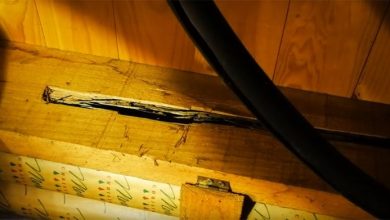Why Ongoing construction stage inspections (OCSI) is important?

Many business owners are worried about ensuring that the newly constructed buildings meet the quality standard and safety. It is essential to ensure the Ongoing construction stage inspections of a building from day 1 till the final construction. OCSI is a very critical procedure. The homeowner has to ensure the safety and standards are followed as per the requirement.
Different members from different sectors join together to perform the construction procedure. It involves coordinating different experts, materials, equipment, and projects. It is a highly complex process, and the chances of hazards and faults are maximum. The construction must be completed according to the contract. Cooperation of both contractor and owner is compulsory to avoid any hazards. If the owner is not available, contractors or builders are also responsible for providing the inspection certificates and ensuring the warranty. Some Ongoing construction stage inspections are critical to consider during construction.
Stage Construction Inspection
This procedure ensures the builders follow all the construction techniques, dedicated workmanship, and the laws signed in the contract. The builder is responsible for meeting all the standards required for the construction before asking for the payments. These strategies help the owners ensure safety from future hazards and save their investments.
Different Stage Construction Inspection
As already mentioned, OSCI is a comprehensive procedure consisting of different levels. There are several stages of inspection.
-
Footing stage inspection
Before the construction, the footing engineer plans the project. After the start of the project, check footing preparation before the pouring of concrete. During construction, the footing is one of the essential elements that laid the foundation of the whole building. Once the concrete is poured, it is impossible to access the foundation material. Inappropriate footing can later cause catastrophic damage to the building.
To avoid such disasters, it is imperative to inspect before pouring. An expert and professional footing inspecting will tell you whether the pouring is according to the engineer’s plan. He will also tell you all the defects and shortcomings such as reinforcement support, foot dimensions, excavating, steel placement and dimensions, and the penetration of pipes.
-
Slab stage inspection
Slab inspection is compulsory before the pouring of concrete. Slabs are part of footing and also play an important role. As these are the foundation of the floor, any defects in the foundation lead to the damage of the building. A slab inspector checks the termite protection barrier supervision, steel placement, and moisture membranes.
-
Wall and roof frame stage inspection
The wall and roof stage inspector monitor the construction according to the mentioned details. He ensures the builders are following the structure and design requirements. He also checks wind braces, ceiling height, floor and roof diaphragm, lintel support, and horizontal wind beams.
-
External roof and wall cladding inspection stage
The inspector ensures that the installation of internal lining is according to the building and construct act. Builders are following all the techniques.
-
Internal or waterproofing inspection stage
Waterproofing inspection is very critical. It can cause damage to the building if it is not checked correctly this time. Ensure that taps and washrooms or any area containing water are not leaky.
-
Locked stage inspection
This inspection stage is optional and conducted when the construction process is not according to the standard.
-
Practical completion inspection (PCI) stage
Before the handover to the owner, this is the final stage to determine whether any changes are required in the property. The expert officer must conduct the Practical completion inspection. Both the client and the builder visit the site and inspect the defects and damages in the new property. Make sure that the inspector must be on your side and flag all the major and minor issues. If they find any defect, they note it down, and it is the builder’s responsibility to construct or alter the material according to the owner’s demand. They perform this task within 2 weeks. Then, the client again visits the site with the construction supervisor to ensure all the mentioned demands in the contract and practical completion inspection 1 are fulfilled in practical completion inspection 2.
Minor and Major Defects List
When the practical completion inspection has been performed, a list of all the major and minor defects is also prepared to inform both contractor and owner.
- List of all minor omissions and damages on which both above parties agree.
- List of minor damage that the client thinks must be changed, but the contractor doesn’t agree.
- State and time when the contractor will be able to attend to these issues.
- The document is signed between both parties to avoid any confusion in the future.
After detecting the minor damages, a 12-month time frame is given to the contractor to sort the issues. Keep the record documentation with you.
-
Fixing inspection stage
When the builder’s work is not satisfactory, then this inspection is performed after PCI. If he cannot meet your satisfaction, you can also conduct your matter to state law or act. However, you must perform this inspection before painting.
Importance of Stage Construction Inspection
The above description shows that all the stages are a series of stringent inspections in which one stage depends on the other. Few benefits of Ongoing construction stage inspection are given below:
- Construction is a series of different stages. The probability of mistakes is maximum. If the damages at the initial phases are neglected, these later can cause harmful hazards.
- It is beneficial for the owner to hire a professional and expert team for the construction.
- Inspection at every stage saves your investment as your money is in your hand until you achieve the building that meets your satisfaction.
- It will provide you with peace of mind. The chances of error are minimum because everything was constructed under critical supervision.
- The top factor should always be a construction project scope during the construction stage inspection. In addition, the clients’ needs are the main focus of the inspections. Also, They should add any changes in the project, share history, list by the client, and report on this as they may approve or disapprove of the task scope changes.





